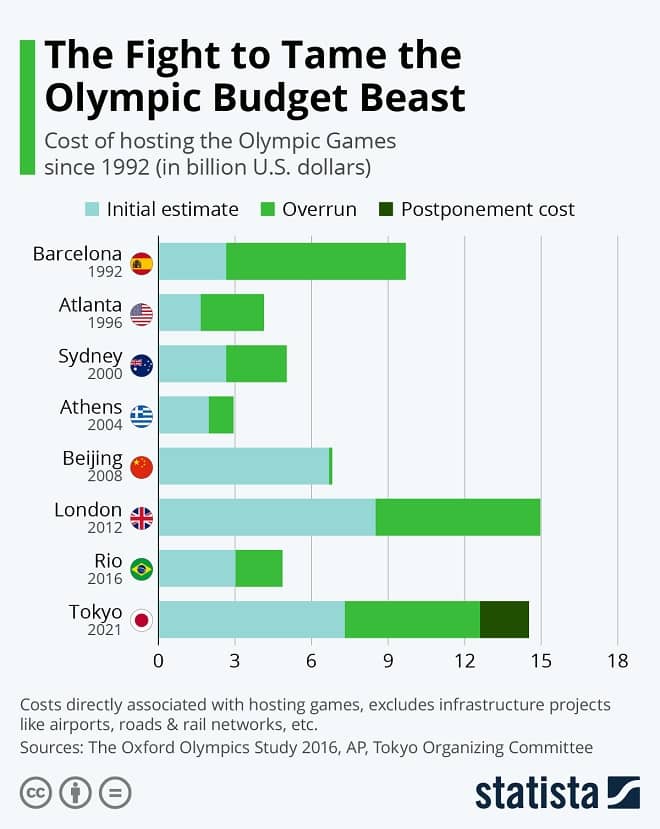Source: Statista
The honour of hosting the most illustrious of sporting events – the Olympic Games – in your country not only requires an incredible amount of time and effort during the application process but also a huge sum of money once you’ve been given the go-ahead by the IOC.
Japan is the latest in line to encounter this phenomenon and is also running into the problem of a year-long postponement of the games due to the COVID-19 pandemic, which is costing the country even more. The AP reported on Sunday that the postponement would cost close to $2 billion, after initial speculation that the cost could be as high as $6 billion. In August, the International Olympic Committee and the Japanese government already picked a fight about who would foot the additional bill. The IOC removed a comment from its website at the time, stating it was Japan’s turn to pay, according to AP.
Without postponement costs, the overspend for the Toyko Games is currently at more than $5 billion. The current estimates would make the 2021 Games the second most expensive in recent history behind the 2012 London Games, but with final price tags almost always more pricey than estimates, the Games would still end up being the most expensive. They are already the most over budget for for absolute dollar values at around $7.2 billion.
This soaring price tag of the prestige event has made the games increasingly unpopular in Japan, with a third of Japanese saying they should be canceled altogether.
Up until now, the dubious honor of being the most over budget goes to the 1992 Barcelona Games. After an initial estimate of $2.6 billion, the final bill came to $9.69 billion – 266 percent or more than $7 billion over budget. The Rio 2016 Olympics also made headlines for being much more expensive than expected, but the budget problems that transpired in Brazil were mostly tied to sports-unrelated infrastructure projects not included in this calculation.


